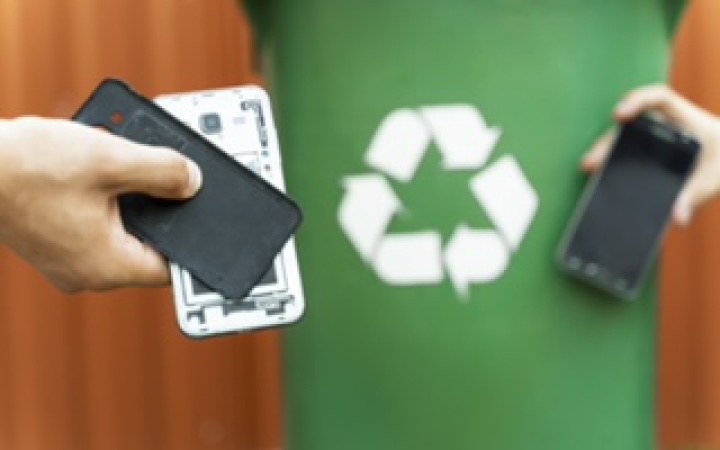Big Business Commits To Taking Bolder Action On E-waste As Government Considers Legislation
PwC New Zealand and Bell Gully are amongst big businesses who have committed to help tackle New Zealand’s significant e-waste issue through an innovative partnership with leasing specialists Quadrent and BNZ that is set to reduce e-waste entering landfill and provide repurposed digital technology to communities around New Zealand to improve education outcomes.

“We’re helping large businesses to disrupt the traditional supply chain, procurement and ownership models associated with technology and simultaneously solve two of New Zealand’s most pressing problems: waste and digital inequality,” comments Quadrent's CEO, Martyn Masteron.
Globally each person generates roughly 7.3 kgs of e-waste each year, but in New Zealand that figure is nearly three times higher - with every New Zealander accounting for 19.2kgs of e-waste each year. Yet while most of us take having access to use a laptop, a mobile phone and the internet for granted, 1 in 7 New Zealander kids are excluded from performing basic technology tasks.
“We’re giving large organisations a way to be at the forefront of innovation and digitisation while reducing e-waste and emissions and helping vulnerable communities around New Zealand get online and take part in the digital economy,” explains Martyn.
“As part of our sustainability goals, we are looking to significantly reduce the amount of e-waste we create. Working with Quadrent has allowed us to do this while also being able to refresh our hardware in a timely way,” says Rebecca Thomas, CIO and Corporate Sustainability Lead, PwC New Zealand.
“It’s a great initiative to be part of. The agreement supports the firm’s environmental sustainability goals and reflects the role we all have in reducing waste and supporting our communities,” comments Haydn Wong, managing partner from Bell Gully.
Legislation changes
Quadrent’s partnership with BNZ, announced in May, comes as the Government considers making legislative changes to how the country manages waste. A proposed new waste strategy, including options for developing new more comprehensive waste legislation to regulate the management of waste, andproducts and materials circulating in our economy, is currently due for release. Once developed, the new legislation will replacethe Waste Minimisation Act 2008 and the Litter Act 1979 andis expected to go through the House during 2023.
How it works
The Quadrent Green Lease allows businesses to fund technology purchases via a lease (that is backed by a BNZ green lending loan product) and at the end of the devices’ lifecycle within that organisation, pass them back to Quadrent who responsibly recycle and repurpose the technology, as well as redistribute a portion of high-spec and high-quality tech devices into communities that need them most.
The arrangement also gives organisations peace of mind that its technology is appropriately managed throughout its lifecycle, including ensuring it is securely wiped and environmentally repurposed, recycled or redistributed along with a full range of reporting that complies with cybersecurity and ESG policies.
Impact potential
“We need to make wholesale changes to how we manage e-waste. Our target participants are large businesses. They have the potential to bring about meaningful, widespread change,” believes Martyn.
In New Zealand alone, there are 2
580 businesses with over 100 employees. “The potential
for significant, far-reaching impact is huge - but it takes
commitment; and action. The Quadrent Green Lease simplifies
action for big businesses wanting to make a difference.
We’re excited to see well-known firms like PwC New Zealand
and Bell Gully taking a leading stance on e-waste; and
we’re proud to be a partner of choice, together with BNZ,
when it comes to ushering in a low carbon future,”
concludes
Martyn.


 Master Plumbers Gasfitters and Drainlayers NZ: New Consumer NZ Test Reveals Danger Of Unregulated Online Plumbing Products
Master Plumbers Gasfitters and Drainlayers NZ: New Consumer NZ Test Reveals Danger Of Unregulated Online Plumbing Products Mindful Money: Winners At The Mindful Money Annual Ethical & Impact Investment Awards 2025
Mindful Money: Winners At The Mindful Money Annual Ethical & Impact Investment Awards 2025 MBIE: Gas Supply Reducing Faster And Sooner Than Previously Forecast
MBIE: Gas Supply Reducing Faster And Sooner Than Previously Forecast Natural Hazards Commission: International Markets Show Unprecedented Confidence In NZ’s Natural Hazards Insurance Scheme
Natural Hazards Commission: International Markets Show Unprecedented Confidence In NZ’s Natural Hazards Insurance Scheme  ASB Bank: ASB Business Survey - The Impact Of Trump's Tariffs, According To Kiwi Businesses
ASB Bank: ASB Business Survey - The Impact Of Trump's Tariffs, According To Kiwi Businesses University of Auckland: Will Robots Help Older People Stay Sharp?
University of Auckland: Will Robots Help Older People Stay Sharp?


